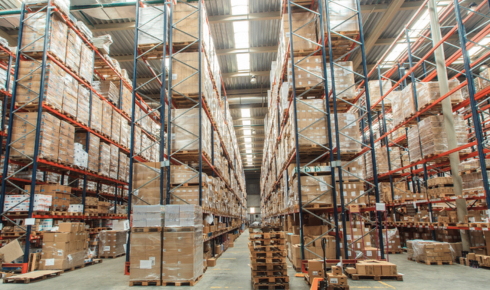In today’s competitive business environment, the efficiency of supply chains determines how smoothly international trade flows. Companies engaged in importing and exporting rely heavily on two critical components: freight forwarding service and bonded storage warehouse solutions. Together, these logistics pillars help businesses streamline transportation, reduce costs, and ensure compliance with international trade regulations.
What is Freight Forwarding Service?
A freight forwarding service is a professional solution that manages the transportation of goods from one destination to another, often across international borders. Freight forwarders act as intermediaries, handling all the complex logistics involved in shipping cargo via air, sea, road, or rail.
Some of the key responsibilities include:
- Booking cargo space with shipping lines and airlines.
- Managing shipping documentation such as invoices, packing lists, and bills of lading.
- Coordinating customs clearance procedures.
- Offering cargo insurance for additional protection.
- Providing tracking and real-time updates on shipments.
By leveraging their expertise, freight forwarders save businesses valuable time, minimize risks, and ensure goods reach their destinations without unnecessary delays.
Benefits of Freight Forwarding Services
Freight forwarding is not just about moving goods; it is about simplifying trade complexities. Some of the major advantages are:
- Global Connectivity: Strong networks with carriers and agents worldwide.
- Time Efficiency: Faster delivery through streamlined logistics.
- Cost Savings: Negotiated freight rates lower overall expenses.
- Flexibility: Customized shipping solutions based on cargo type.
- Risk Reduction: Accurate documentation avoids penalties and delays.
Industries such as pharmaceuticals, automobiles, textiles, and electronics benefit significantly from freight forwarding services, as they often require timely and secure deliveries.
What is a Bonded Storage Warehouse?
A bonded storage warehouse is a secure facility authorized by customs authorities to store imported goods without immediate payment of customs duties or taxes. Businesses can store their cargo in these warehouses until they are ready to distribute it in the domestic market or re-export it.
Key features include:
- Deferred Duty Payment: Taxes and duties are paid only when goods leave the warehouse.
- Safe Storage: Equipped with advanced security and monitoring systems.
- Repackaging and Labeling: Goods can be modified, repackaged, or relabeled before release.
- Long-Term Storage: Companies can keep cargo for extended periods while managing demand cycles.
- Support for Re-Exports: Ideal for firms importing goods for re-export without incurring unnecessary costs.
These warehouses provide flexibility and financial relief, especially for businesses importing large volumes or managing multiple trade markets.
How Freight Forwarding and Bonded Warehousing Work Together
Freight forwarding and bonded warehousing are interconnected aspects of the logistics chain. Once goods arrive at a port or airport, freight forwarders coordinate their movement to bonded warehouses for safe storage. This process ensures businesses can delay duty payments, manage inventory effectively, and maintain smoother supply chains.
For example, an electronics company importing components from abroad can rely on freight forwarding services to bring shipments to India. Once the goods arrive, they can be stored in a bonded warehouse until the company is ready to assemble or sell them. This integrated approach offers financial savings and operational convenience.
Role of Technology in Freight Forwarding and Warehousing
Technology is revolutionizing logistics services. Freight forwarding companies now use AI-driven tools for route optimization, blockchain for transparent record-keeping, and IoT-enabled tracking systems for real-time visibility. Similarly, bonded warehouses employ advanced inventory management software, automated systems, and digital surveillance for improved efficiency.
These innovations not only reduce human errors but also provide businesses with better insights into their operations.
The Future of Freight and Warehousing in Global Trade
With increasing globalization, the demand for efficient logistics services will continue to grow. E-commerce expansion, trade agreements, and technological advancements are pushing companies to seek reliable freight forwarding and bonded warehousing solutions. Sustainability will also play a bigger role, as businesses look for eco-friendly transport and energy-efficient storage options.
Conclusion
Freight forwarding service and bonded storage warehouse facilities form the backbone of modern trade. While freight forwarding ensures smooth international transportation, bonded warehouses provide secure and cost-effective storage solutions. Together, they enable businesses to optimize supply chains, save costs, and remain competitive in a rapidly changing global marketplace. By leveraging technology and strategic logistics partners, companies can achieve greater efficiency and long-term growth in international trade.

